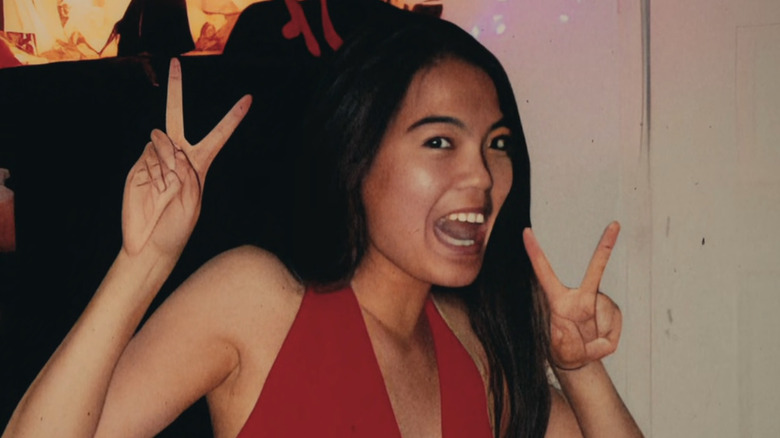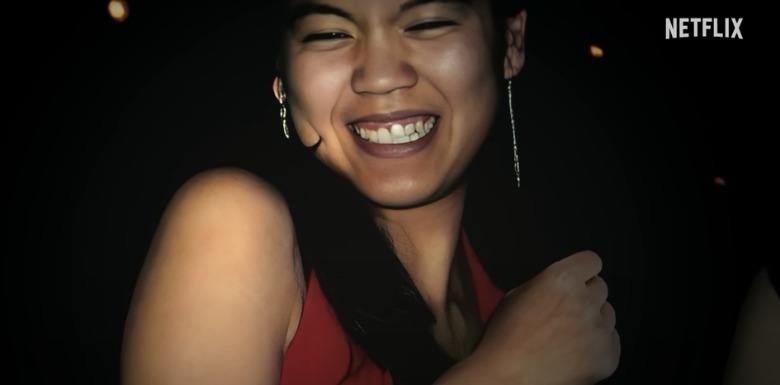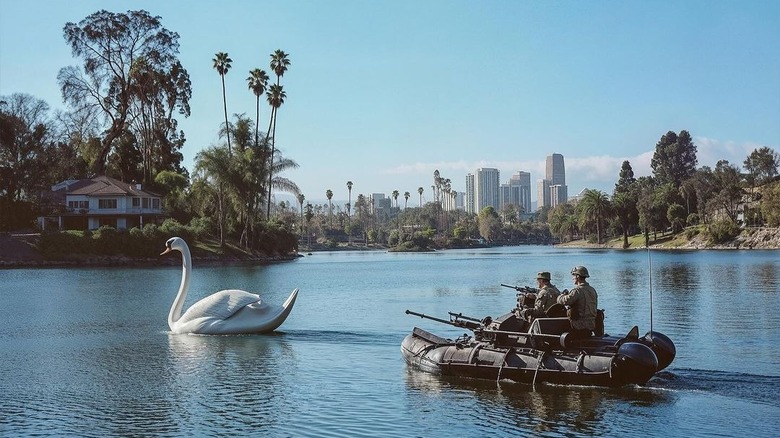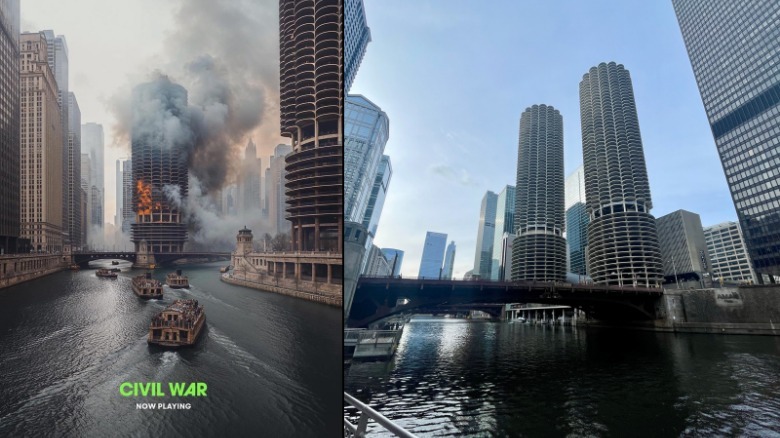A Netflix True Crime Doc Used Nightmarish AI Images Of The Killer
What do you do if you're making a true crime documentary for Netflix, but you don't have enough good-quality photos of the murderer? Well, you can shoot re-enactment footage with an actor (with text to make it clear that it's a re-enactment). You can use illustrations or even animation. What you probably shouldn't do is use AI to plug the gaps, resulting in photos of the killer with nightmarish teeth and hands from the fourth dimension.
Unfortunately, that's exactly what the filmmakers behind "What Jennifer Did," a 90-minute documentary about Jennifer Pan's kill-for-hire attack on her own parents, decided to do. The results, as seen above and below, were disturbing, to say the least. While it's been widely speculated that the images are entirely AI-generated, it's also possible that an AI photo enhancer like Remini or VanceAI was used on poor-quality photos to try and restore them, resulting in the same artifacts that are found in wholly-made AI images. (Neither Netflix nor director Jennifer Popplewell have yet commented on the controversy at the time of publication.)
The disturbing images were first reported by Futurism earlier this week, in an article highlighting the AI artifacts that are a dead giveaway. 404 Media points out that the discovery of these images rather ironically coincided with leaders of the Archival Producers Alliance presenting a set of draft guidelines for the ethical use of AI in documentary filmmaking. Speaking to the outlet, APA co-founder Rachel Antell warned about the dangers of muddying the historic record with AI images:
"One of the things we've realized is once a piece of media exists, even if it is disclosed [that it's AI generated], it can then be lifted out of any documentary, make its way onto the internet and into other films, and then it's forever part of the historic record ... It's very hard to pull that back."
A24's AI fails
It's been a big week for AI-generated image flubs. Beloved indie studio A24, which has recently begun to pivot away from its arthouse roots and towards bigger-budget IP with franchise potential, has got off to a rocky start with promotional posters for Alex Garland's new film "Civil War." With a production budget of $50 million, it's A24's most expensive film ever, and it appears the studio attempted to save a few pennies by commissioning AI-generated posters for the movie. (According to a fan account, these posters were made by digital marketing agency Watson, which has previously partnered with A24 on other releases and also created a generative AI microsite for "Civil War.")
While the posters might look normal at a brief glance, a closer look quickly reveals unchecked AI errors. A source close to the movie told the Hollywood Reporter that the basic concept behind the images was "powerful imagery of iconic landmarks" within the war-torn world of the film. However, AI image generators are notoriously bad at accurately depicting "iconic" locations, since every image includes an element of randomness. Not only is the above depiction of Los Angeles' Echo Park Lake inaccurate, but it appears that the prompt included a request for one of the lake's signature swan-shaped pedal boats. The AI instead generated a boat-sized swan. The resulting poster gives the impression that "Civil War" is a kaiju movie about soldiers hunting the giant swan.
The other posters have similar flaws. For example, this attempt to depict Chicago's Marina City invents an imaginary fork in the river where there isn't one in real life, and moves one of the two iconic towers away from its partner and into the imaginary island in the middle of the river.
Boy, Chicago really got hit hard by that civil war.



